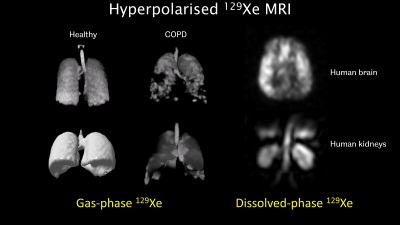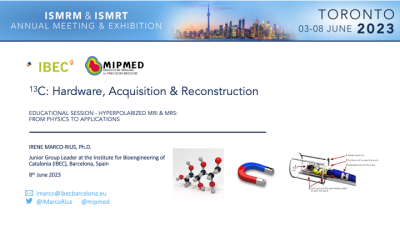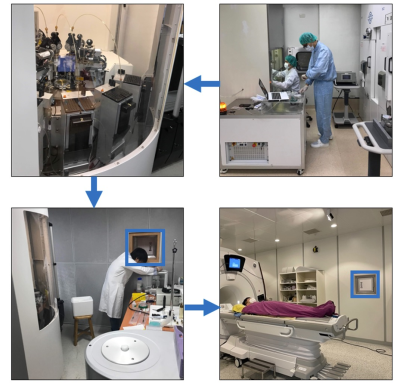Weekday Course
Hyperpolarized MRI & MRS: From Physics to Applications
ISMRM & ISMRT Annual Meeting & Exhibition • 03-08 June 2023 • Toronto, ON, Canada

| 13:45 |
Overview of Hyperpolarization
Yuhei Takado
Keywords: Contrast mechanisms: Hyperpolarization Hyperpolarization is a powerful technique that enhances NMR signal intensity, and it can be implemented using various methods. This presentation provides an overview of hyperpolarization for medical applications, with a particular focus on dynamic nuclear polarization (DNP), which is now utilized in clinical research. The presentation outlines the fundamentals of hyperpolarization and discusses the necessary components for hyperpolarized magnetic resonance imaging. Additionally, prospects for the field are presented in the hopes of inspiring further research efforts. |
|
| 14:15 |
 |
129Xe: Hardware, Acquisition & Reconstruction
Graham Norquay
Keywords: Contrast mechanisms: Hyperpolarized MR (Gas), Physics & Engineering: Hardware, Physics & Engineering: Physics This presentation focusses on the optimisation of hardware for polarising 129Xe and the methods for acquiring and reconstructing in vivo hyperpolarised 129Xe MR data. The technology of 129Xe-Rb spin-exchange optical pumping is introduced, followed by a description of the critical steps involved in system characterisation and optimisation. The second part of this talk covers the technical challenges and potential applications of current acquisition and reconstruction methods for in vivo hyperpolarised 129Xe MR. |
| 14:45 |
 |
13C: Hardware, Acquisition & Reconstruction
Irene Marco Rius
Keywords: Contrast mechanisms: Hyperpolarization This lecture will give an overview of the workflow of a hyperpolarized 13C-MRSI experiment, with focus on the two main polarization techniques used for biomedical applications of hyperpolarized 13C-labelled nuclei: dissolution Dynamic Nuclear Polarization (dDNP) and Parahydrogen Induced Polarization (PHIP). Concepts related to hardware for hyperpolarization and MRSI signal acquisition, data analysis and validation will be introduced and discussed. |
| 15:15 |
 |
Clinical applications of Hyperpolarized 13C and 129Xe MRI
Gigin Lin
Keywords: Contrast mechanisms: Hyperpolarization, Cross-organ: Cancer, Education Committee: Clinical MRI Hyperpolarized (HP) MRI is an emerging imaging technique to enhance signals of gases (helium-3 or xenon-129) or liquids (carbone-13), to highlight body's internal structures and metabolic processes. Traditional MRI provides detailed images of the anatomy of the body, and HP MRI goes further by providing information about metabolic processes in real-time. Based on its non-invasive and non-irritation nature, HP MRI has gained attentions in wide range of potential clinical applications, including cancer, heart, lung, brain, and metabolic disorders. In this talk we will discuss the clinical potentials of HP MRI through exploring the ongoing research and clinical trials. |
The International Society for Magnetic Resonance in Medicine is accredited by the Accreditation Council for Continuing Medical Education to provide continuing medical education for physicians.